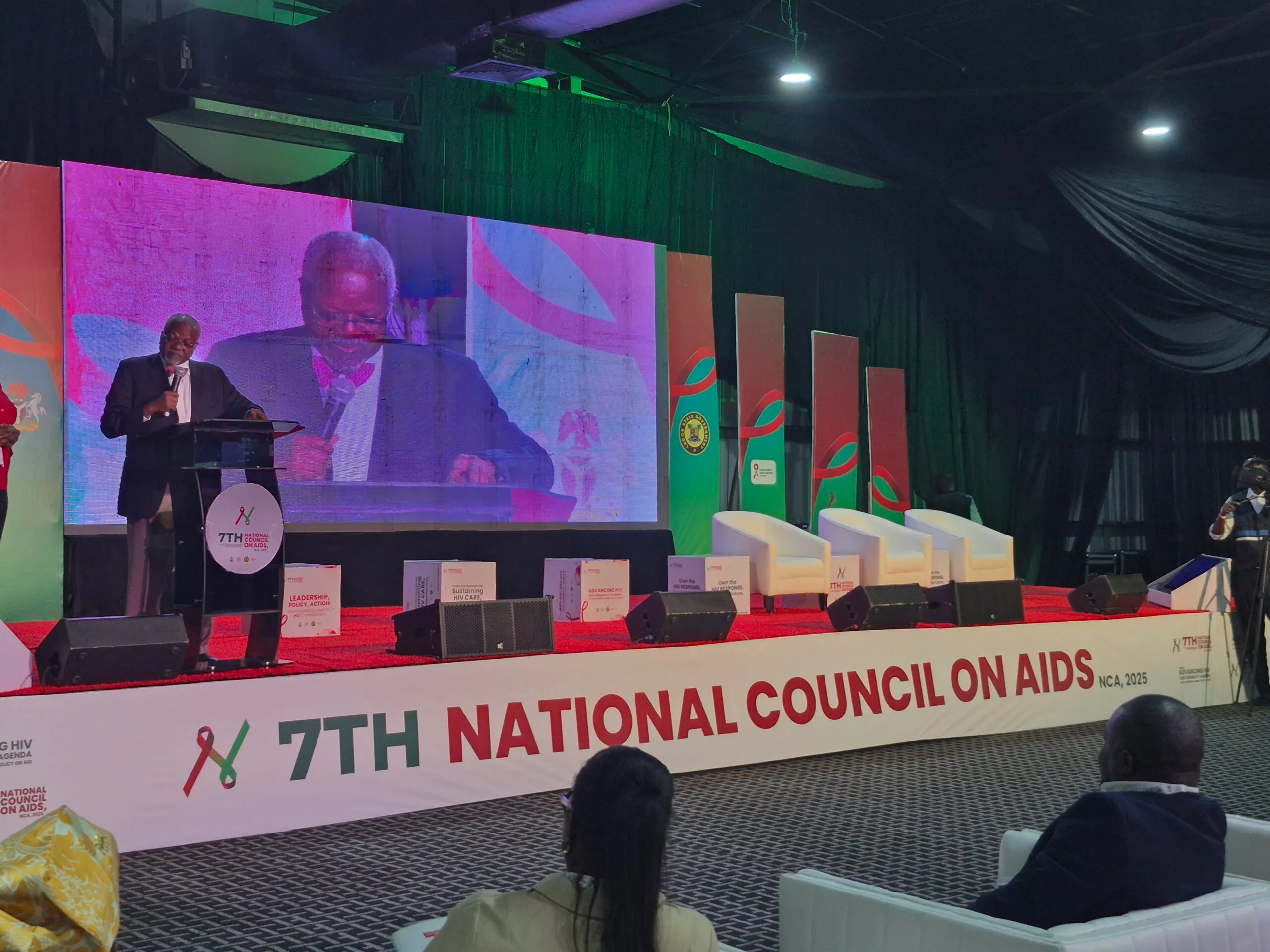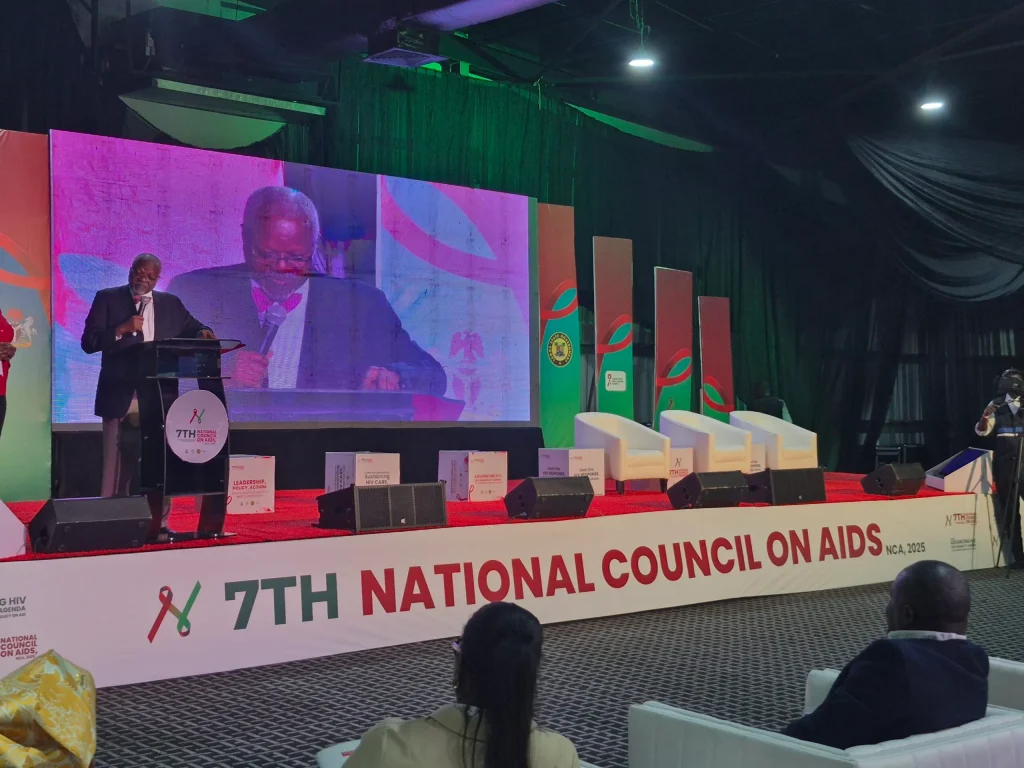
Source: Mariam Ileyemi

NIMR’S DG, John Obafunwa at the 7th NCA in Lagos
In a major breakthrough for Nigeria’s HIV response, the Nigerian Institute of Medical Research (NIMR) has reported zero cases of mother-to-child HIV transmission among pregnant women who received care at its facility.
This revelation came during the keynote address delivered by Professor John Obafunwa, NIMR’s Director-General, at the 7th National Council on AIDS (NCA) held in Lagos. Prof. Obafunwa represented the Minister of State for Health and Social Welfare, Dr. Iziaq Salako.
As of June 2025, the institute was providing HIV care to:
All 16 pregnant women enrolled in NIMR’s Prevention of Mother-to-Child Transmission (PMTCT) programme delivered HIV-negative babies, confirming the effectiveness of the treatment model.
Additionally, in July 2025, NIMR enrolled:
Highlighting some of the challenges, Prof. Obafunwa said many people living with HIV in Nigeria remain undiagnosed and that issues such as transportation costs and unemployment continue to impact treatment retention.
He called for increased government support to help HIV-positive individuals access jobs and social safety nets to stay in care.
According to Dr. Oliver Ezechi, NIMR’s Director of Research, the institute’s success in preventing HIV transmission from mother to child is based on applying scientifically proven methods already used in developed countries.
“We observed that health facilities often turn away HIV-positive women once their status is known,” he noted.
“We implemented protocols that ensure safe deliveries, and today, our paediatric HIV clinic is nearly empty.”
NIMR is also involved in:
Prof. Obafunwa reaffirmed the institute’s readiness to partner with the National Agency for the Control of AIDS (NACA) on future research and surveillance efforts.
Globally, UNICEF acknowledges that West and Central Africa—Nigeria included—has contributed significantly to reducing new HIV infections among children under five. The region accounted for 14% of 4.4 million infections prevented globally between 2000 and 2024.
However, UNICEF warns that progress is still too slow to meet the 2030 global targets set by UNAIDS.
“Acceleration of treatment for all pregnant and breastfeeding women living with HIV is still needed to eliminate new infections among children,” the agency said.
In response to sustainability concerns, NACA’s Director-General Dr. Temitope Ilori said the government is now focusing on domestic solutions to ensure long-term progress. These include:
Expanding health insurance
Strengthening local drug manufacturing